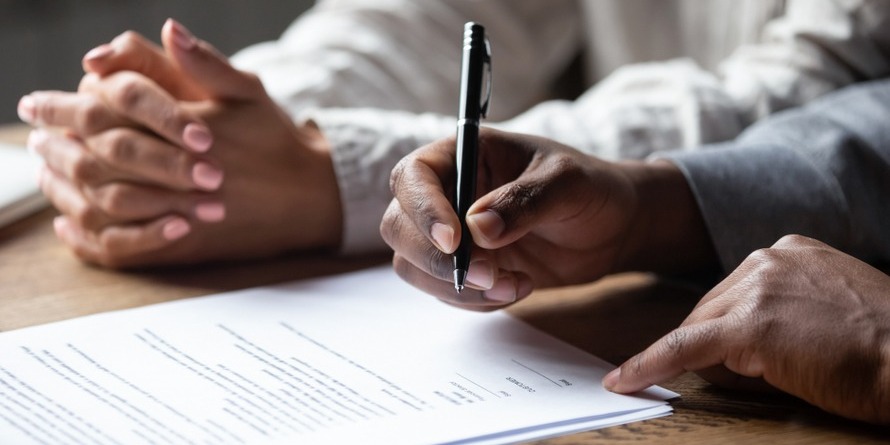
Buying a home for the first time is an exciting experience, and newcomers to the property market can benefit from first time buyer mortgages.
In this article, we’ll run through what first time buyers can expect from these mortgage types and how to get one.
In this article, we’ll run through what first time buyers can expect from these mortgage types and how to get one.
What is a first time buyer?
A first time buyer is someone taking their first steps onto the property ladder. You will be considered a first time buyer if you’ve never owned a property before. First time buyers can benefit from competitive mortgage rates, government schemes and Stamp Duty exemption on homes up to £300,000.
What is a first time buyer mortgage?
A first time buyer mortgage is designed for housing market newcomers. They may include offers to incentivise first time buyers. Some offer 100% mortgages where buyers can borrow the entire purchase price with no deposit.
How does a mortgage work for first time buyers?
First time buyers will need to mortgage to secure their new home. Mortgage repayments are based on the buyer’s income, expenses and credit history. Lenders will provide a Mortgage in Principle to outline how much you could potentially borrow. Your deposit will also impact how much you pay each month, with a higher deposit reducing your monthly payments.
For more information, take a look at our guide to mortgages for first time buyers.
Key elements of a first time buyer mortgage
As well as the necessary documents for a mortgage, like proof of ID and payslips, there are a few other key elements. This includes deciding on a type of mortgage and the checks that come with it.
Deposit
As a first time buyer you need a minimum deposit of 5% of the property value. Most lenders prefer first time buyers to have a deposit of 10% or more, as this can show that the buyer is financially responsible. The higher the deposit, the less you need to borrow for your mortgage.
Check out our article for tips on saving for a house deposit.
Types of mortgage deals
There are different types of mortgages first time buyers can opt for:
- Fixed rate. A fixed rate mortgage is a loan with interest that remains the same for a set period (usually two to five years). You will have fixed repayments for the duration.
- Tracker. A tracker mortgage is linked to the Bank of England’s base rate, so the interest you pay is variable. Usually, this deal lasts between two and five years. Your monthly repayments will change in response to the base rate.
- Standard variable. When your previous mortgage deal comes to an end, you will often be put on your lender’s Standard Variable Rate (SVR). This can vary depending on your lender. The main benefit of this mortgage type is that you can often switch to a new deal without paying exit fees.
Mortgage affordability checks
First time buyers need to provide proof that they can afford their mortgage repayments. Lenders look at income, expenses and credit history as part of their mortgage affordability checks. Make sure that you can provide the required documentation, which may include photo ID, proof of address, proof of deposit and proof of income.
Mortgage fees, Stamp Duty and associated costs
There are fees that come with a mortgage. One-off charges like arrangement fees or valuation and broker fees can be expected by first time buyers. There are also ongoing fees like the interest paid on repayments. For first time buyers buying properties over £300,001 you will also need to pay Stamp Duty.
Government schemes and help for first time buyers
Government schemes and saving accounts offer help for first time buyers. Lifetime ISAs, the First Homes scheme and Shared Ownership can help first time buyers onto the property ladder.
The First Homes scheme
First Homes is a Government-backed scheme for first time buyers. Homes are offered with a discount of at least 30%. On new builds, this applies to homes up to £250,000 in value, making buying more affordable.
Lifetime ISAs
A Lifetime ISA is useful for first time buyers saving for a deposit. You can contribute up to £4,000 each year and the government will add a 25% bonus. Up to a maximum of £1,000 per year.
Shared Ownership scheme
Shared Ownership allows first time buyers to purchase a percentage of a property (usually between 10% and 75%). Buyers will then pay rent on the part they don’t own.
How to get a first time buyer mortgage
Now that you know what a first time buyer mortgage is, let us break down into simple steps how to get one:
- Save for a deposit. Calculate how much you need to save each month for at least a 5% deposit, or utilise a Lifetime ISA
- Assess what repayments you can afford. Based on your deposit, evaluate your income and check how much you can comfortably repay each month
- Get a Mortgage in Principle. This can help you to better understand your borrowing capacity and show sellers you're a serious buyer
- Explore first-time buyer schemes. Check your eligibility for government schemes like First Homes and Shared Ownership
- Get quotes from more than one lender. Shop around for a mortgage based on your financial situation and payment preferences
- Apply with up-to-date information. Help lenders assess your mortgage affordability and whether the type and term are right for you by providing up-to-date documents
Common mortgage mistakes for first time buyers
First time buyers are new to the mortgage market. This makes it easier for them to make these common mistakes.
Not shopping around for lenders
Finding the best deal for your first time buyer mortgage may require shopping around. You can compare different mortgage types and offers by speaking to several lenders. Make sure to check the overall costs, including extra fees that may increase the price.
Forgetting the added mortgage fees
First time buyers may overlook added costs such as arrangement, valuation and broker fees. They can quickly add up, so it’s important to factor them into your budget. It's essential to compare the total costs, not just the monthly repayments.
Stretching your budget
Stretching your budget to the max can leave first time buyers in a tricky situation with no financial cushion. While it’s tempting to go for a higher-priced property, there may be other costs to factor in. It’s important to only borrow within your means, as missing monthly repayments could put your home at risk of repossession.
Ready to become a homeowner? Explore our new homes across the UK, with fantastic offers to help you move.
Call or visit our Sales Advisers to start your homebuying journey today.


